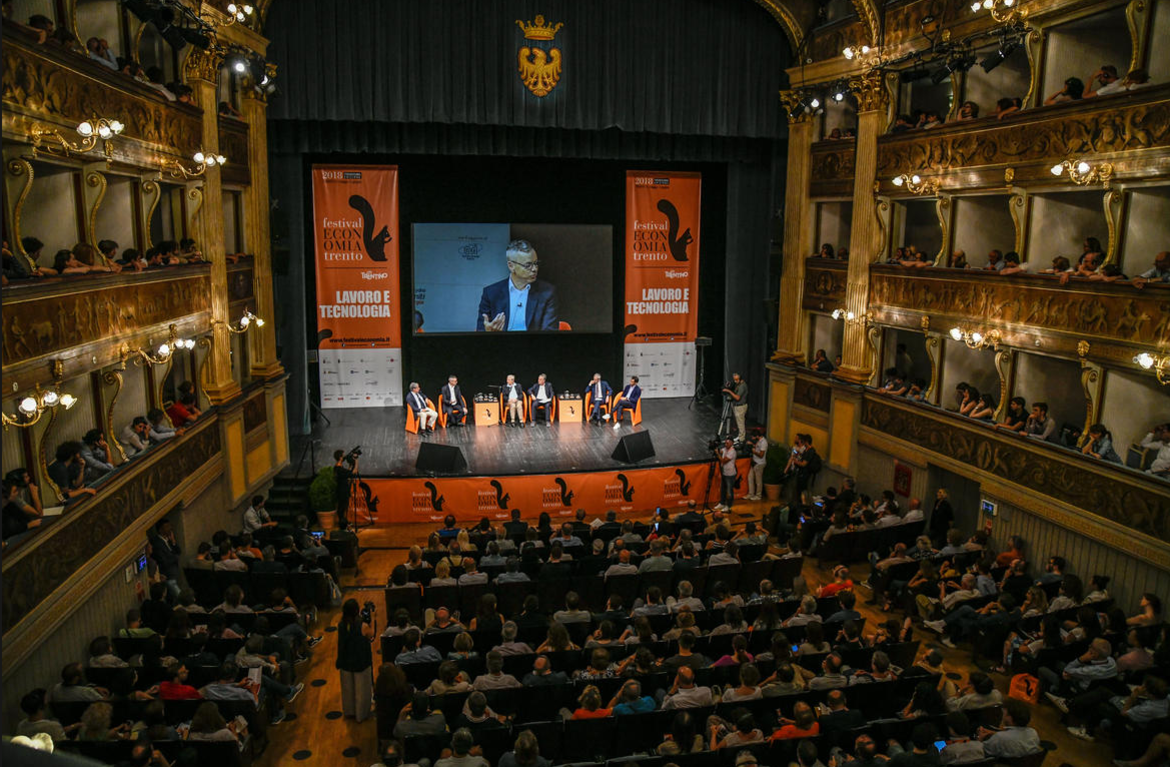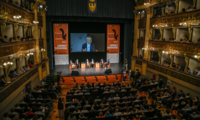
While technology has lead to substantial economic growth and higher living standards in the long-run, there are losses in the short-run. Professor of Economic History at New York University, Robert Allen, showed how during the first phase of the Industrial Revolution in Britain wages did not follow in line with productivity and initially the development of technology lead to the increase of inequality. Bendheim Professor of Economics and Public Affairs at Princeton University and Chairman of President Barack Obama’s Council of Economic Advisers Alan Krueger shared a similar concern of growing inequality because of the downward pressure on wages of low skilled jobs increasing inequality. Philip McCann, Professor of Urban and Regional Economics at the University of Sheffield warned against techno-optimism due to the consequences of regional disparity. This is evident in examples such as the Brexit vote where poorer regions voted to leave and richer regions voted to remain, even though poorer regions would be hurt the most by leaving the EU. Thus, the consensus was clear in the festival that technology will not make jobs disappear, but that the consequences will be great.
A common call among all speakes was the need and demand for governments to have a role in a technological world and how it affects society. Multiple speakers have mentioned the role that governments can play in training labor to be more prepared for the labor market. Aleksi Jantti, Deputy Mayor of the City of Tampere, Finland and Stefano Scarpetta, Director of Employment, Labor and Social Affairs at the OECD both refer to importance of lifelong learning policies which allows labor to withstand shocks in the labor market. Richard Baldwin professor of International economics at the Graduate Institute of International and Development Studies in Geneva sees these active labor management policies (ALMP) as ways of mitigating the effects of globalization by protecting workers. These policies require collaboration between all major actors in society. Spence agreed with need for a collaborative approach between labor, government and business. This approach he says relies on labor being flexible, governments providing support and businesses providing the training. Scarpetta agrees with the need to include private actors as they are far too often not apart of the policy making process.
Speakers throughout the entire festival emphasized the need and importance for a united Europe in order to address the challenges of today including the economy, migration, and a changing world environment. George Soros, founder and chair of Soros Fund Management, took the stage on the last day of the festival and explained why a united Europe is necessary for the future. For both Soros and other speakers including Frans Timmermans, Vice President of the European Commission, the disintegration of Europe is no longer just a figure of speech, but today is the harsh reality. The challenge of the European Union today is to act in a unitary manner while still respecting each member states national elections such as the recent elections in Italy. Soros emphasized the danger of populism in Italy regarding the recent elections, but acknowledged the legitimate grievances of the Italian voters on issues including handling of the euro and the disproportionate burden from the migration crisis. Soros stressed that leaving the euro would be a mistake for Italy, but that the EU must not punish Italy, but rather work with Italy to improve the situation. For the future, both Soros and Timmermans stressed the importance of multilateralism and Europe working with other partners especially as the United States turns away from its traditional allies. This unity and the future of the EU will be key and many speakers during the festival referenced the importance of the upcoming 2019 European Parliament elections.
In the final session, Nobel Prize Economist Michael Spence provided his opinion on Italy and Europe. Italy has a lot of assets in people and creativity but suffers from too many obstacles getting in the way of young talented people trying to start businesses. Spence says the Italian economy needs to be “untied and let free” to fully realize its potential. Spence also expressed a desire for the conversation in Europe to change from social security and welfare policy to competitiveness policy. Spence acknowledges social welfare policies and their necessity but wishes more time was devoted to discussing how to make Europe more competitive. Many speakers emphasized the need for more events like the Trento Economic Festival, that brings together civil society, politicians, and academics in a collaborative and open dialogue to address today's biggest challenges and promote proactive responses and solutions.
Watch the interview with Tito Boeri: https://youtu.be/2L2BWotHAjI
Website: https://2018.festivaleconomia.eu/home
Twitter: https://twitter.com/economicsfest
Facebook: http://www.facebook.com/festivaleconomiatrento
Instagram: https://www.instagram.com/festivaleconomia/








